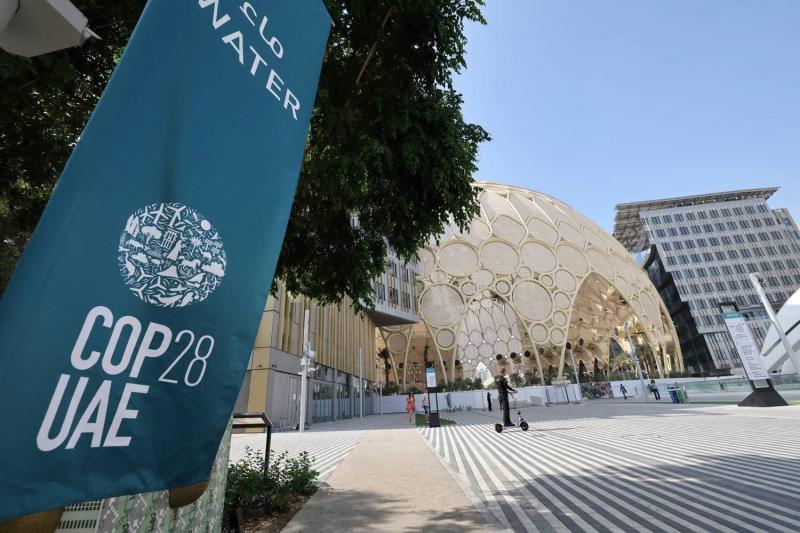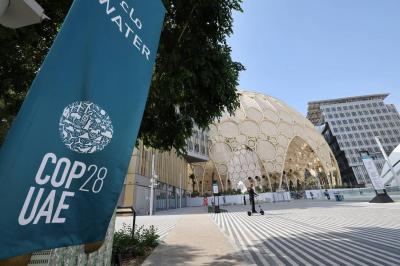The United Nations Climate Change Conference (COP28) is headed for an extension today, Tuesday, as negotiators await a new draft agreement after many countries criticized the previous version as being too weak for omitting a "phasedown" of fossil fuels. The countries gathering at the Dubai summit are trying to agree on a global action plan to curb climate change swiftly enough to avoid further catastrophic flooding, deadly heat, and irreversible changes to the world's ecosystems.
A draft of a final agreement published by the United Arab Emirates, which is presiding over the summit, suggested eight options that countries "could" take to reduce emissions. One of these was "to reduce consumption and production of fossil fuels, in a fair, organized, and equitable manner to achieve net zero by 2050 or earlier, or within its limits." This would mark the first time in history that a UN climate summit has referred to reducing the use of all types of "fossil fuels." However, this step did not meet the level of a "phasedown" of coal, oil, and gas that many countries demanded, nor did it focus on reducing their use this decade, which scientists say is necessary to prevent escalating climate change.
Negotiators were expecting a new text today, Tuesday, as the conference was nearing its conclusion at 07:00 GMT, although delegates said that it could not conclude by the deadline. Climate conferences rarely end on time. Majid Al Suwaidi, Director General of COP28, stated on Tuesday that the summit presidency wants to include a "historic" reference to the future of fossil fuels in the next draft of the potential agreement, but it is up to about 200 countries involved in the discussions. He told reporters, "In this COP, we are trying to do something that has never happened before, something historic. Part of this is incorporating fossil fuels into the text. If we can, it will be historic."
**Saudi Pressure**
Sources familiar with the discussions indicated that COP28 President Sultan Al Jaber faced pressure from Saudi Arabia, which effectively leads the OPEC group, to drop any mention of fossil fuels from the text—a request that Al Jaber did not act upon. The Saudi government did not respond to requests for comment on Tuesday. A representative from Saudi Arabia at COP28 declined to comment on the text late Monday.
In a message dated December 6, seen by Reuters, OPEC Secretary General Haitham Al Ghais urged members to reject any COP28 agreement targeting fossil fuels. Negotiators and observers at COP28 told Reuters that while Saudi Arabia was the strongest opponent, other OPEC and OPEC+ members, including Iran, Iraq, and Russia, resisted attempts to include a phasedown of fossil fuels in the agreement.
Agreements at United Nations climate summits must be unanimous among the nearly 200 countries present. It then falls to each country to implement the globally agreed-upon pact through national policies and investments. For oil-producing countries, achieving a global agreement at the UN climate conference to phase out fossil fuels could signal a political willingness from other states to reduce their reliance on profitable products that fuel oil-dependent economies.
Kuwaiti Oil Minister Saad Al Barrak stated during the 12th Arab Energy Conference held in Doha on Monday that "Kuwait operates under a policy focused on preserving and optimally exploiting and developing its oil wealth." Despite the rapid growth of renewable energy, fossil fuels still account for about 80 percent of the world's energy production.
It remains unclear whether China, the largest emitter of greenhouse gases in the world, supports the draft resolution. Sources familiar with the COP28 negotiators’ meeting in the early hours of Tuesday indicated that Beijing opposed a part of the text stating that global greenhouse gas emissions should reach their lowest levels before 2025.




